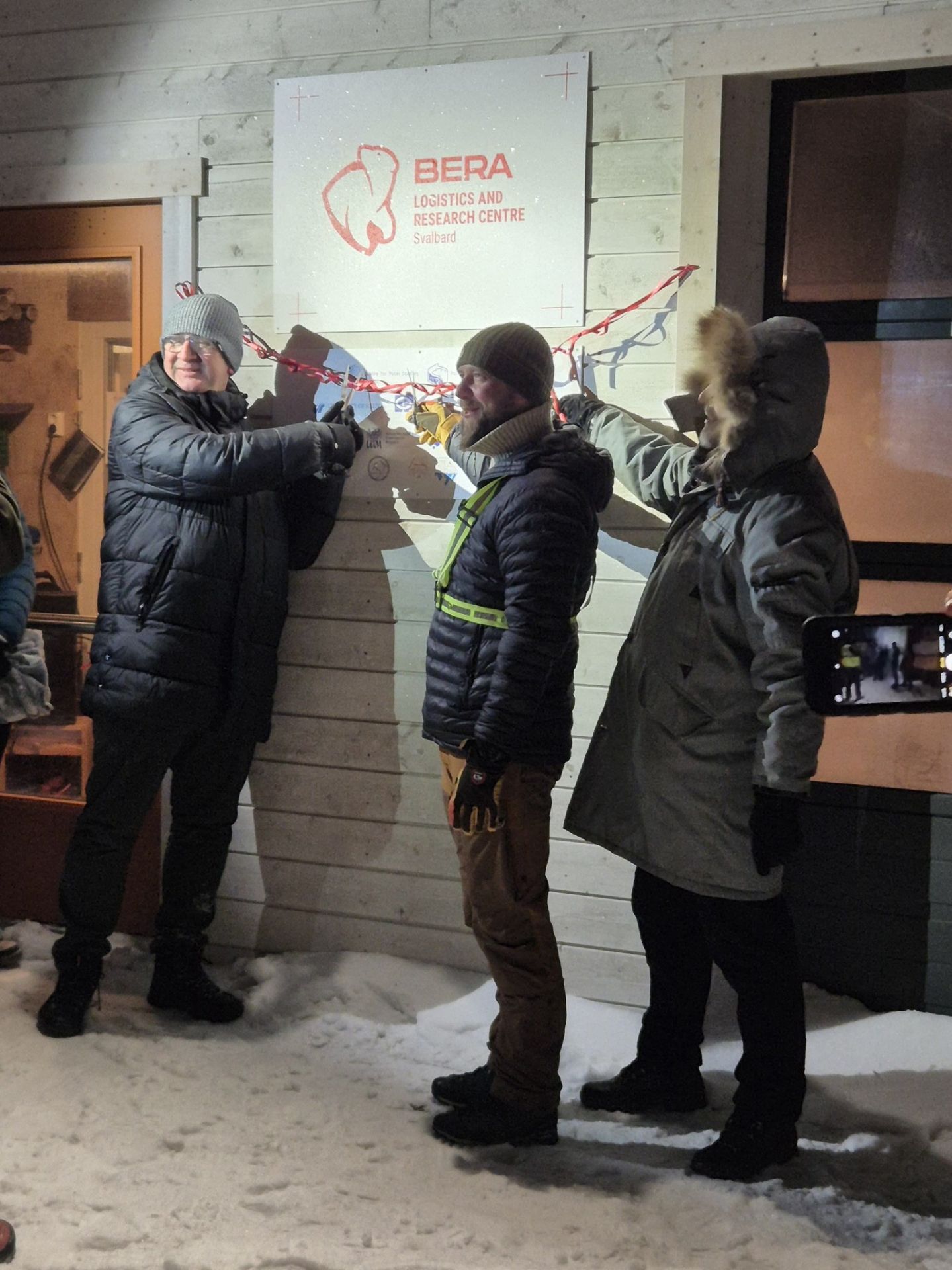Polish polar researchers have launched the BERA research infrastructure, enabling the collection and analysis of samples from various regions of Norway’s Svalbard and facilitating their transport to Poland. Polar research has been an important research area for Polish scientists for years and is also funded by the National Science Centre.
 Official opening of the BERA Center, January 23, 2025. Photo: Polskie Konsorcjum Polarne
In Norway and Iceland, Polish polar explorers conduct research on environmental and climate change. They study the cryosphere, which is the part of the hydrosphere comprising water in the form of non-vanishing glacial, sea ice and ground ice. They also conduct social, political and cultural research. In the Norwegian archipelago of Svalbard located in the Arctic Ocean, Polish researchers have been present since the 1950s. Several Polish research stations are located there. The BERA research and logistics centre in Longyearbyen was opened recently.
Official opening of the BERA Center, January 23, 2025. Photo: Polskie Konsorcjum Polarne
In Norway and Iceland, Polish polar explorers conduct research on environmental and climate change. They study the cryosphere, which is the part of the hydrosphere comprising water in the form of non-vanishing glacial, sea ice and ground ice. They also conduct social, political and cultural research. In the Norwegian archipelago of Svalbard located in the Arctic Ocean, Polish researchers have been present since the 1950s. Several Polish research stations are located there. The BERA research and logistics centre in Longyearbyen was opened recently.
The BERA Centre, whose name is derived from an Old Norse word meaning “she-bear”, is a joint project carried out through the collaboration of seven scientific institutions: the University of Silesia (leader), the Institute of Geophysics of the Polish Academy of Sciences in Warsaw and the Institute of Oceanology of the Polish Academy of Sciences in Sopot, Adam Mickiewicz University in Poznań, Nicolaus Copernicus University in Toruń, Maria Curie-Skłodowska University in Lublin and the University of Wrocław. The institutions will fund the NCN’s activities and support its maintenance for the coming 10 years. BERA is active in three areas: logistical support, scientific research and teaching and educational activities. Its activities will contribute to the intensification of international scientific cooperation, which will broaden the scope of research and knowledge exchange.
Maintaining the infrastructure and conducting environmental monitoring outside Poland in the harsh conditions of the Arctic regions is a major challenge, requiring support from multiple sources. The National Science Centre has been funding research work in those regions for years, both through national competitions and through external funding.
NCN was the operator of the Basic Research programme under the last edition of the Norwegian and EEA Funds. We organised the GRIEG competition, in which support was granted to 7 projects in the sphere of polar research. We also funded the CRIOS pre-defined project involving 7 Polish and 4 Norwegian partners, and the HarSval bilateral initiative involving 11 Polish and 14 Norwegian partners. Thanks to EEA and Norwegian funds, it was possible to strengthen scientific cooperation between Poland and Norway, including interdisciplinary research, modernise and expand the automated monitoring network for the Spitsbergen cryosphere, develop the Polish Polar DataBase, make data available in accordance with FAIR data and Open Science principles, and organise workshops to harmonise and standardise research.
Dr Zuzanna Świrad, a geomorphologist from the Institute of Geophysics of the Polish Academy of Sciences, talked about sea ice research, working conditions as a coastal researcher on Spitsbergen and the balance between private and professional life in an interview with Anna Korzeka-Józefowicz.

